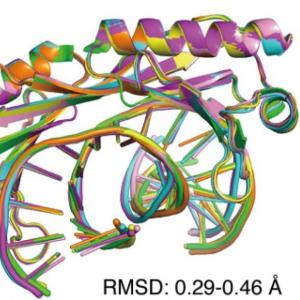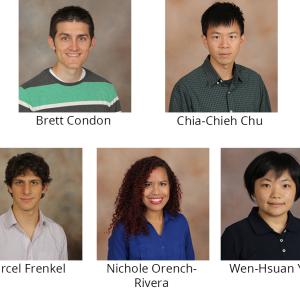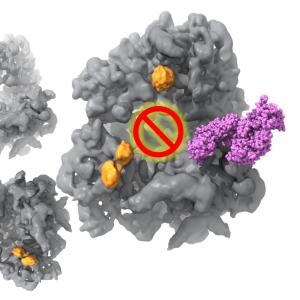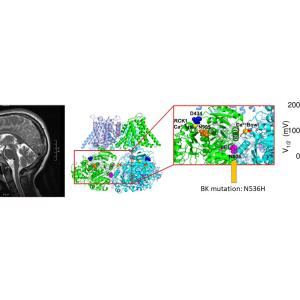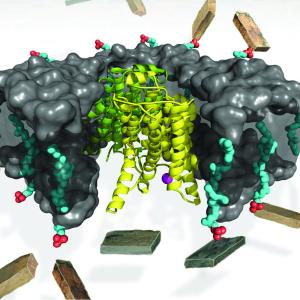Transcription Factors May Inadvertently Lock In DNA Mistakes
A team of Duke researchers found that transcription factors have a tendency to bind strongly to “mismatched” sections of DNA, which might be a way in which random mutations become a problem that leads to disease, including cancer. Read more
Atul Rangadurai Wins Scholarship Award
Atul Rangadurai wins Chancellor's Award for Research Excellence.
Congratulations to This Year's Biochemistry PhDs!
In 2019-20, nine BiochemistryPhDs defended their dissertations
Collaboration Makes New Discovery Using Cryo-EM
An international collaboration that included the labs of Drs. Alberto Bartesaghi and Gustavo Silva found a new regulation of protein production in cells under oxidative stress using cryo-EM.
Jason Arne and Team Help Keep the Mentor Relationship on Track
To prevent putting the mentor relationship on the back burner, graduate students developed an engaging calendar to keep this important relationship moving forward. Read more
Yang Lab Collaboration Reveals New Discovery
A close collaboration between The Yang Lab, The Mikati Lab at Duke Pediatrics, and The Cui Lab at Washington University, St. Louis uncovered the molecular pathophysiology of a new human BK channel mutation associated with dystonia, and discovered novel therapeutics to mitigate this common movement disorder. Read about their findings in Movement Disorders.
Meet One of the Next Generation of Biochemists, Brady Travis
Next-gen biochemist, Brady Travis, Brady solved the structures of the transcription complexes that control Francisella tularensis’ virulence
MRaY Structures Inform Rational Drug Design
To combat antibiotic resistance, Drs. Seok-Yong Lee and Ellene Mashalidis wrote a review paper to describe several recent structures of MraY and its human paralog, GlcNAc-1-P-transferase, providing critical paths forward for the design of potent and selective MraY inhibitors. Read more
